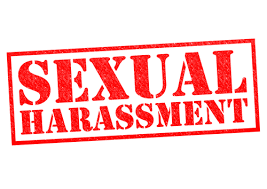Originally published by Leiza Dolghih.
 In the wake of the #MeToo movement, many employers remain unaware that they must investigate sexual harassment allegations and take appropriate measures if sexual harassment is perpetrated by non-employees, such as customers or vendors.
In the wake of the #MeToo movement, many employers remain unaware that they must investigate sexual harassment allegations and take appropriate measures if sexual harassment is perpetrated by non-employees, such as customers or vendors.
A recent opinion from the Fifth Circuit Court of Appeals addressed just this issue when the court considered whether a nurse at a nursing home facility who repeatedly complained of sexual harassment by a patient with dementia presented a strong enough claim to go to trial. The Fifth Circuit found that she did. And although Gardner v. CLC of Pascagoula, L.L.C. involved a rather common and pervasive problem of patient-nurse sexual harassment, the Court’s analysis is usefull for all companies where employees have interaction with customers or third parties on a regular basis.
The Court of Appeals reminded that pursuant to the Regulation issued by the Equal Employment Opportunity Commission (EEOC):
An employer may [] be responsible for the acts of non-employees, with respect to sexual harassment of employees in the workplace, where the employer (or its agents or supervisory employees) knows or should have known of the conduct and fails to take immediate and appropriate corrective action. In reviewing these cases the Commission will consider the extent of the employer’s control and any other legal responsibility which the employer may have with respect to the conduct of such non-employees. 29 C.F.R. 1604.11(e)
In Gardner, the patient who suffered from a host of mental disorders, had a documented history of grabbing the female nurses’ “breasts, butts, thighs, and trying to grab their private areas,” and asking them to engage in sexual activity with him as well as making lewd sexual comments. Several nurses routinely recorded this behavior on the patient’s chart and made complaints to their supervisors. Additionally, at least one of the supervisors observed the patient behaving in a sexually inappropriate manner.
When the plaintiff-nurse attempted to discuss her concerns about the patient’s behavior, her supervisor and the nursing facility administrators allegedly laughed and told her to “put [her] big girl patients on and go back to work.” Eventually, after the patient punched her in the breast while she was trying to assist him, she asked to be reassigned. Her request was denied. The patient was soon transferred to an all-male facility but only after he had punched a male resident.
The district court granted the employer’s summary judgment finding that a hostile work environment did not exist because it was “not clear to the court that the harassing comments and attempts to grope and hit [were] beyond what a person in the [nurse’s] position should [have] expect[ed] of patients in a nursing home.”
The Court of Appeals disagreed, however, ruling that while inappropriate comments from patients with reduced cognitive abilities may not rise to the level of legally-actionable sexual harassment, where a patient crosses the line into physical contact, which progresses from occasional inappropriate touching or minor slapping to persistent sexual harassment or violence with the risk of significant physical harm, the employer must take steps to try to protect an employee.
BOTTOM LINE: If a company becomes aware that its employees are being harassed by a third party, such a customer or vendor, the company has an obligation to take steps immediately to get the harassment to stop. This may include reassignment of the employee, adding security, conversations with a customer or a vendor, and a host of other measures. Ignoring the situation once the employer becomes aware of it may result in a liability under Title VII.
Leiza Dolghih represents companies in business and employment litigation. She also frequently advises companies on all aspects of employment law from hiring to firing to internal and government investigations. She can be reached at Leiza.Dolghih@lewisbrisbois.com or (214) 722-7108 or via the form below.
[contact-form-7]
Curated by Texas Bar Today. Follow us on Twitter @texasbartoday.
from Texas Bar Today https://ift.tt/2NknAo5
via Abogado Aly Website
No comments:
Post a Comment